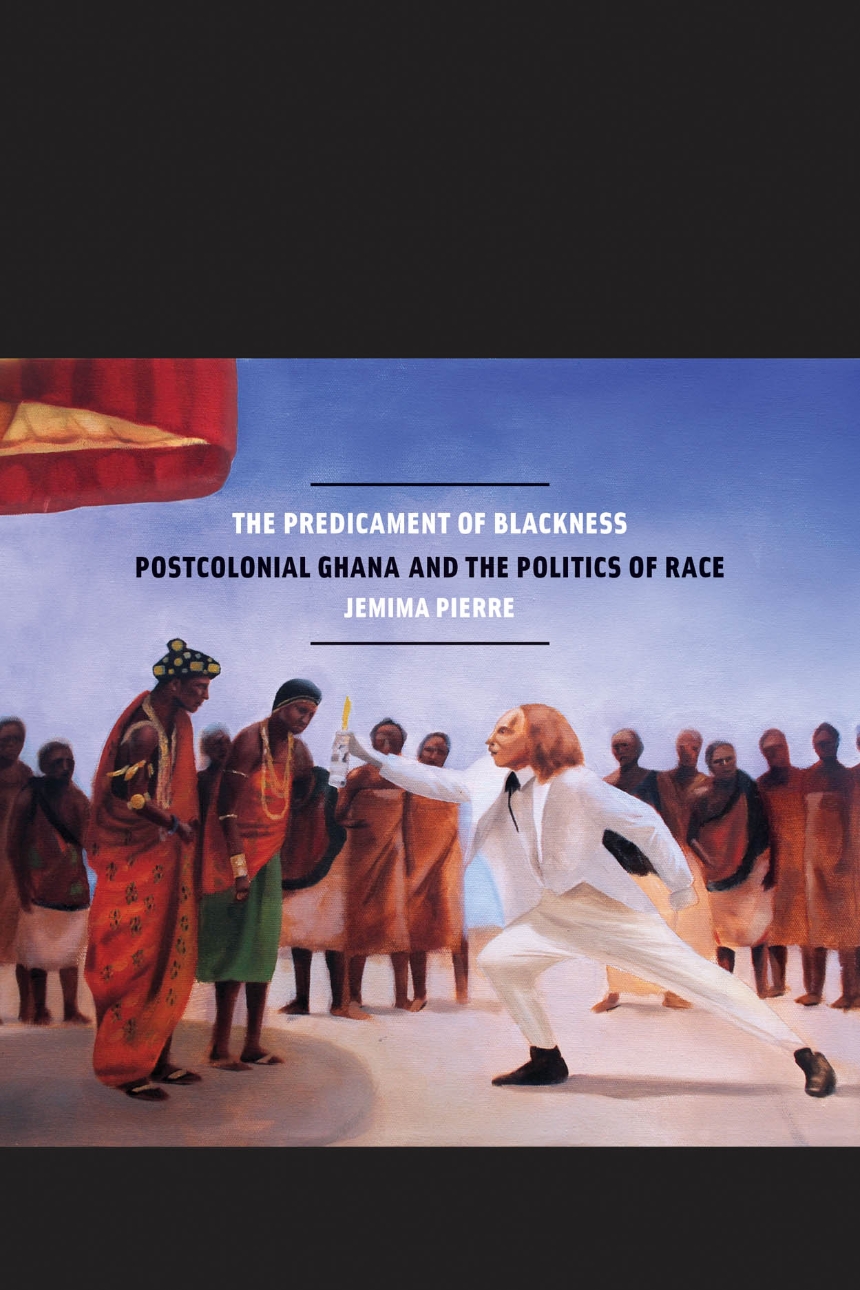The Predicament of Blackness
Postcolonial Ghana and the Politics of Race
9780226923031
9780226923024
9780226923048
The Predicament of Blackness
Postcolonial Ghana and the Politics of Race
Publication supported by the Bevington Fund
What is the meaning of blackness in Africa? While much has been written on Africa’s complex ethnic and tribal relationships, Jemima Pierre’s groundbreaking The Predicament of Blackness is the first book to tackle the question of race in West Africa through its postcolonial manifestations. Challenging the view of the African continent as a nonracialized space—as a fixed historic source for the African diaspora—she envisions Africa, and in particular the nation of Ghana, as a place whose local relationships are deeply informed by global structures of race, economics, and politics.
Against the backdrop of Ghana’s history as a major port in the transatlantic slave trade and the subsequent and disruptive forces of colonialism and postcolonialism, Pierre examines key facets of contemporary Ghanaian society, from the pervasive significance of “whiteness” to the practice of chemical skin-bleaching to the government’s active promotion of Pan-African “heritage tourism.” Drawing these and other examples together, she shows that race and racism have not only persisted in Ghana after colonialism, but also that the beliefs and practices of this modern society all occur within a global racial hierarchy. In doing so, she provides a powerful articulation of race on the continent and a new way of understanding contemporary Africa—and the modern African diaspora.
288 pages | 23 halftones | 6 x 9 | © 2012
Anthropology: Cultural and Social Anthropology
Sociology: Race, Ethnic, and Minority Relations
Reviews
Table of Contents
Preface
Acknowledgments
Introduction
ONE / Of Natives and Europeans: Colonialism and the Ethnicization of Racial Dominance
TWO / “Seek Ye First the Political Kingdom”: The Postcolony and Racial Formation
THREE / “You Are Rich Because You Are White”: Marking Race and Signifying Whiteness
FOUR / The Fact of Lightness: Skin Bleaching and the Colored Codes of Racial Aesthetics
FIVE / Slavery and Pan-Africanist Triumph: Heritage Tourism and State Racecraft
SIX / “Are You a Black American?”: Race and the Politics of African-Diasporic Interactions
SEVEN / Race across the Atlantic . . . and Back: Theorizing Africa and/in the Diaspora
EPILOGUE / Writing Ghana, Imagining Africa, Interrogating Diaspora
Notes
References
Index
Awards
Association for Africanist Anthropology: Elliott P. Skinner Book Award
Won
